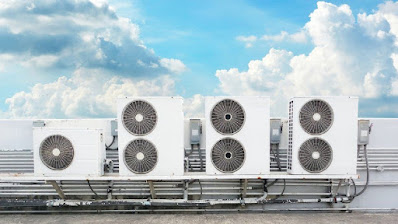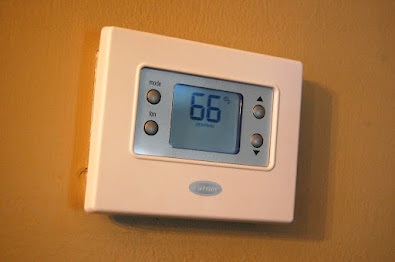10 Tips on Choosing your Perfect HVAC System
1. What's Your Budget?
The first thing to consider when shopping for a heating system is how much money you have to spend. If you're unsure what price range to look at, start small and work your way up. You may need to adjust the budget based on different factors, such as where you live, how many people will use the room, and any special features they want to include in the system.
2. Where Do You Live?
3. Determine how old it is?
It's important to know if your system was built before 2015 because systems built after this year may not have a variable speed compressor (also known as VAV) or programmable thermostat. If your equipment does not have a programmable thermostat, consider getting one to save money. A programmable thermostat can help reduce utility bills while keeping you comfortable at home.
4. How much space do I need?
One of the biggest mistakes people make when choosing an HVAC system for their greenhouse is underestimating the size of the area where they want to install their unit. For example, if you plan to plant tropical fruit trees in your greenhouse, you'll likely need more than one zone—and may be even two. Because climate-controlled environments require different temperatures, it makes sense to install separate zones for each room in your greenhouse.
However, if you plan on working with fish tanks or reptiles in your greenhouse, you may only need one zone. Regardless of the plants you're raising, and you'll need enough space to allow for proper ventilation.
5. How many BTUs does my ideal unit provide?
When shopping around for an HVAC system, you'll be looking mainly for efficiency, cost, and capacity. Efficiency refers to how well the unit uses electricity. Cost represents the unit's price, and capacity describes how big the unit can comfortably cool or heat a certain amount of square footage. When choosing between units, pay close attention to the system's number of BTUs (British thermal units). Units rated higher generally offer greater capacities and cooling capabilities.
While you shouldn't pick a specific model based solely on the amount of BTUs, you should look for a system that offers about 1,000 BTUs per hour. A typical high-efficiency furnace will produce anywhere from 2,500 to 5,000 BTUs per gallon of gas, depending on your chosen brand. Most estimates suggest that a 10,000-BTU furnace will run $12-$20 per month, while a 4,000-BTU heater costs less than half that amount.
14 SEER vs. 16 SEER – Which HVAC system is better for you?
Choosing the right heating and cooling system for your home can be daunting. It seems like so many different types and models to choose from, and it can be hard to decide which one is right for you. If you're looking to upgrade your home's heating and cooling system, you may want to consider investing in a 16 SEER unit. You can consult an HVAC expert to determine whether 14 or 16 SEER is more suitable for your home.
A 16 SEER unit is significantly better than a 14 SEER unit regarding cooling efficiency. A 14 SEER unit only produces 13% as much cool air as a standard central air conditioner. A 16 SEER unit can produce up to 22% more cool air. This means that not only will your home be cooler with a 16 SEER system, but you will also save on energy bills over time.
6. Which features matter most to me?
Here's a quick rundown of some of the essential features to look for in any HVAC system:
- Size: There are times when you won't need a full-fledged commercial-grade system, and other times when purchasing the largest model is the best option. Your best bet? Start small and then add other systems as necessary over time.
- Capacity: You'll need enough power to cover the entire greenhouse, so always choose a unit with enough capacity to Consider how much room each plant needs. In general, larger plants need more heat than smaller ones, so get an appropriately sized unit.
7. Is It Energy Efficient?
When selecting a heating system, think about the efficiency rating. Look for units with ratings of 90% to 100%. Anything lower than that isn't worth investing in. Ideally, you'd want an entire house unit rated between 95%-100%, but if you're willing to compromise a bit, an 80%+ rating should suffice.
8. Does it Have a Remote Control?
Another thing to consider when buying a heating system is whether it has a remote control. While not necessary, having one will allow you to set your desired temperatures remotely rather than relying on the thermostat.
9. Does It Provide Heat/Cooling?
Many systems provide heat or cool, but others provide either exclusively. Of course, if you've got enough room in your home, you can always add a separate air conditioner later if you need to cool.
10. Consider the filters
If you've had the same AC filter for several years, get a new one. Filters change over time, and this could create clogs and decreased airflow. Keep your filters clean by changing them regularly.
Frequently Asked Question
Is the ductwork blocked with lint, debris, or dust?
If so, you'll need to install an inline air cleaner. An inline air cleaner removes particles from the air passing through the ductwork. It should be installed at least 15 feet away from any heating registers. Inline air cleaners aren't designed to treat airborne bacteria and mold spores; they offer effective pollen, mites, and pet dander treatment.
In conclusion, choosing the right HVAC system for your home is essential, considering many factors. These 10 tips will help you select the best system for your needs.







Comments
Post a Comment